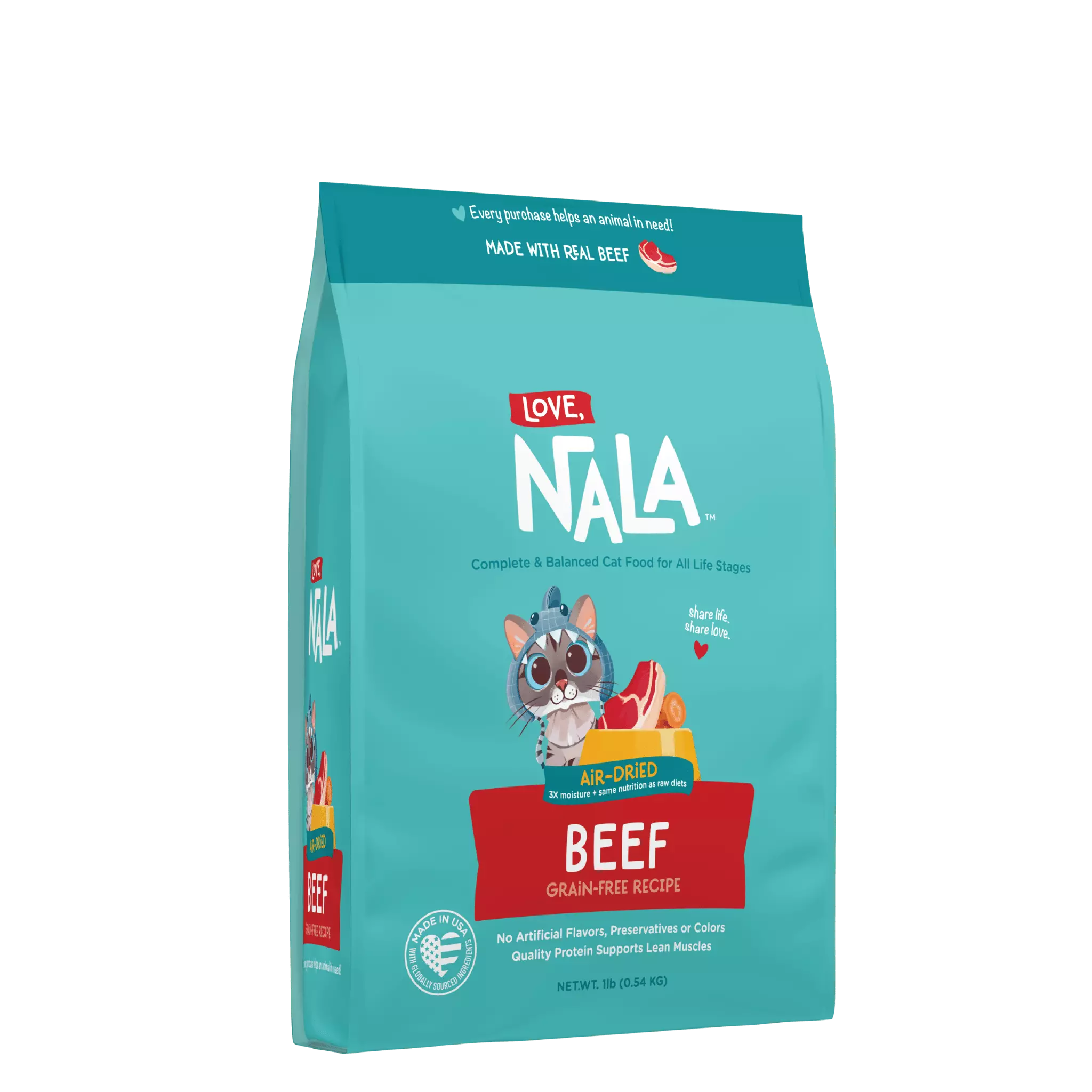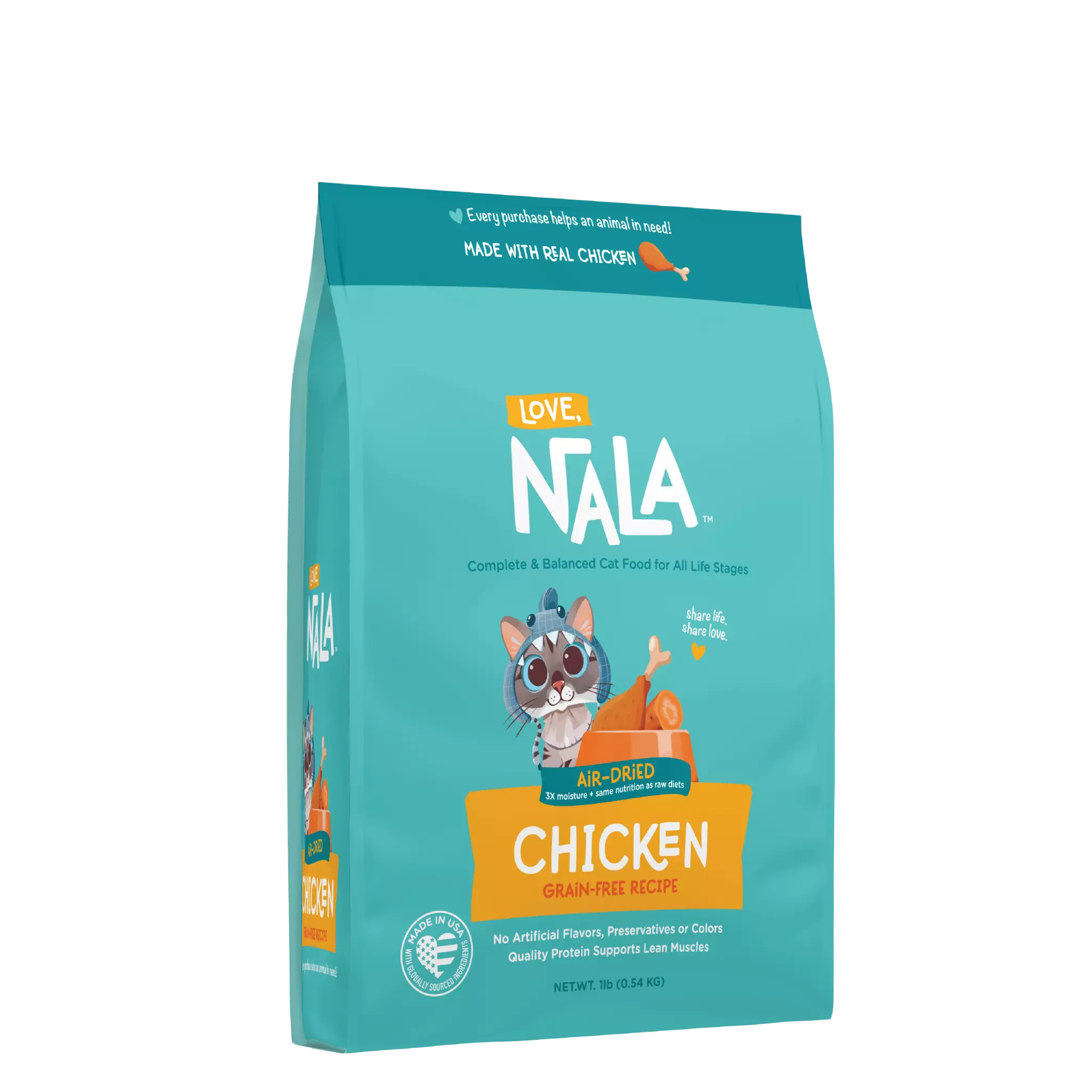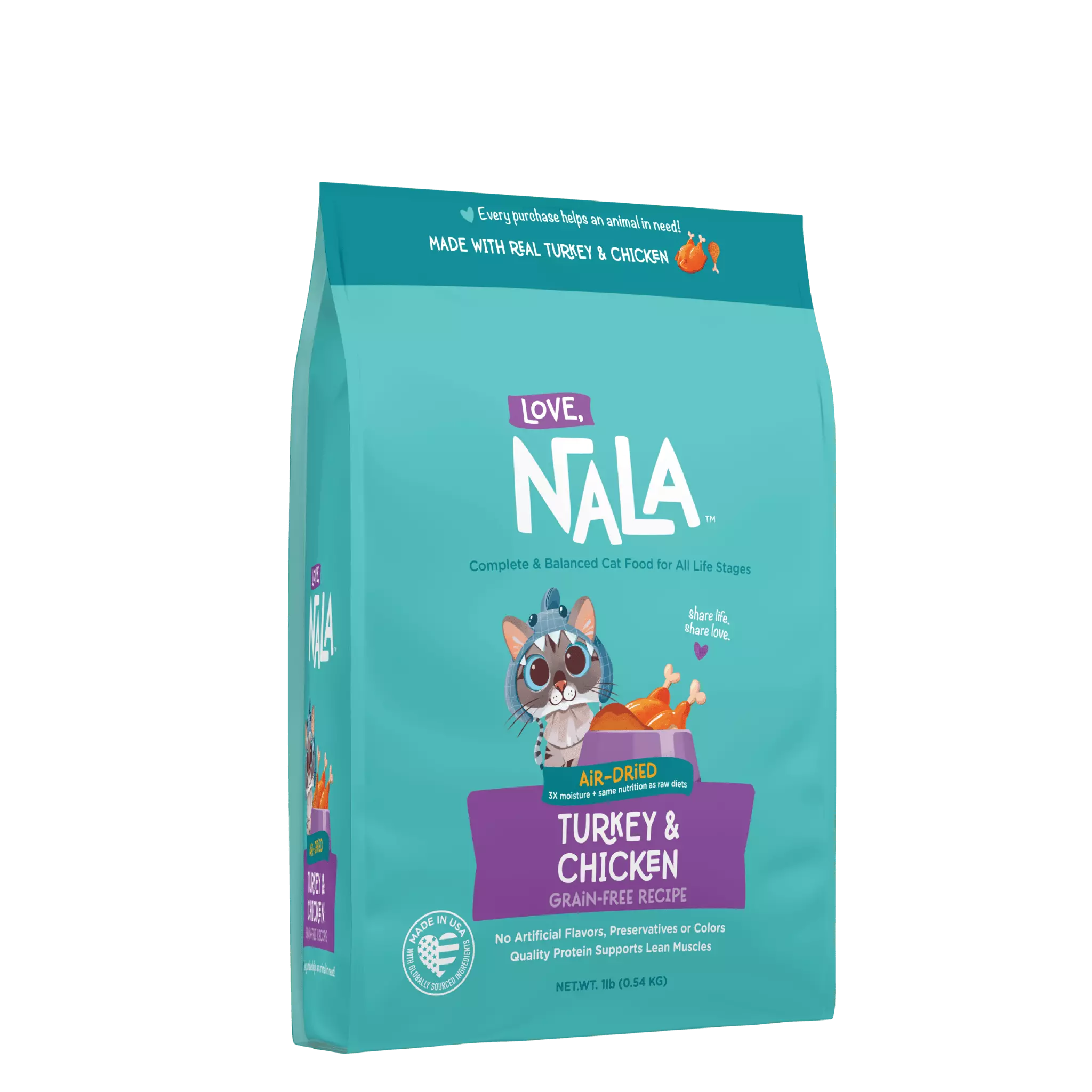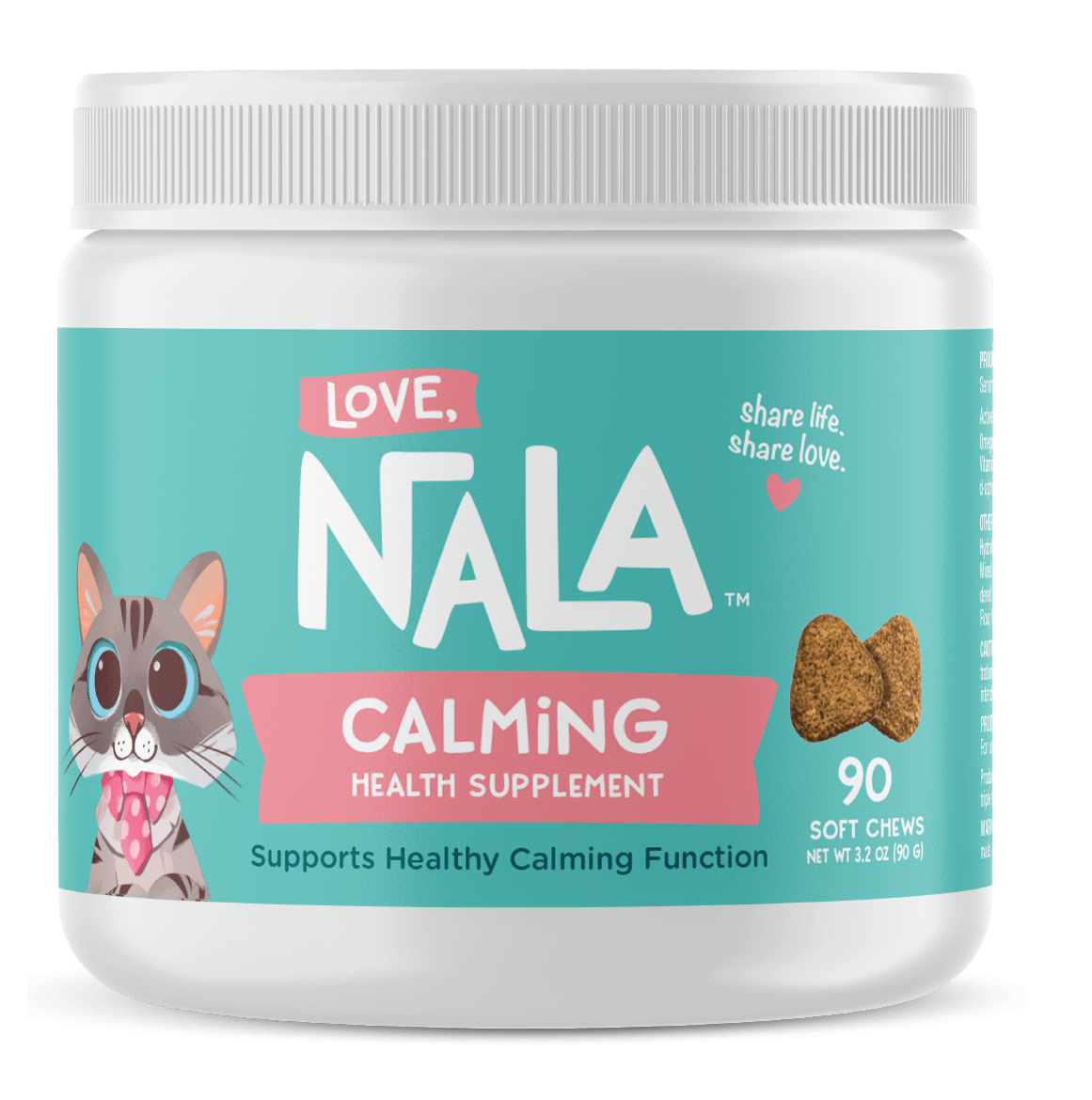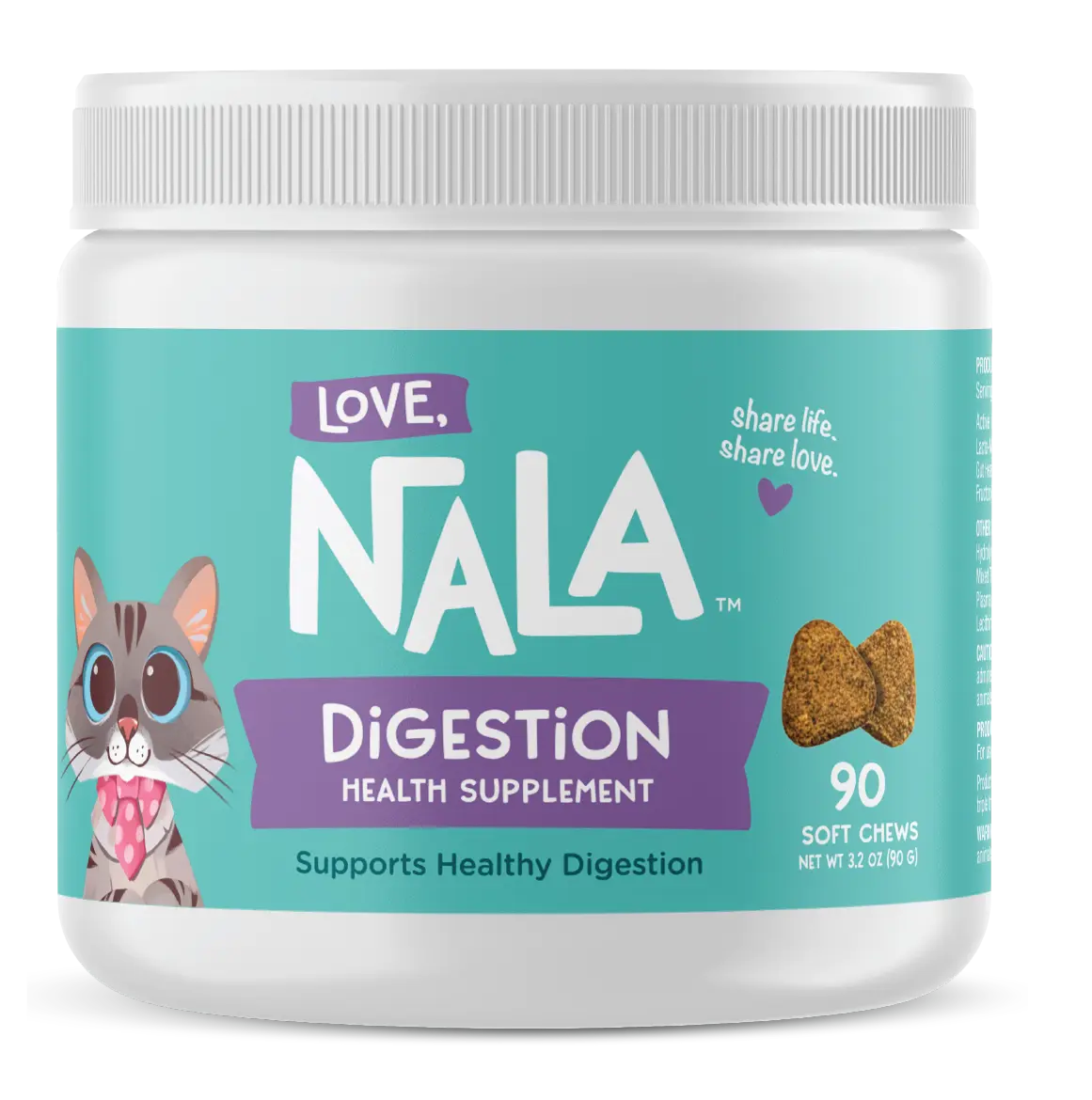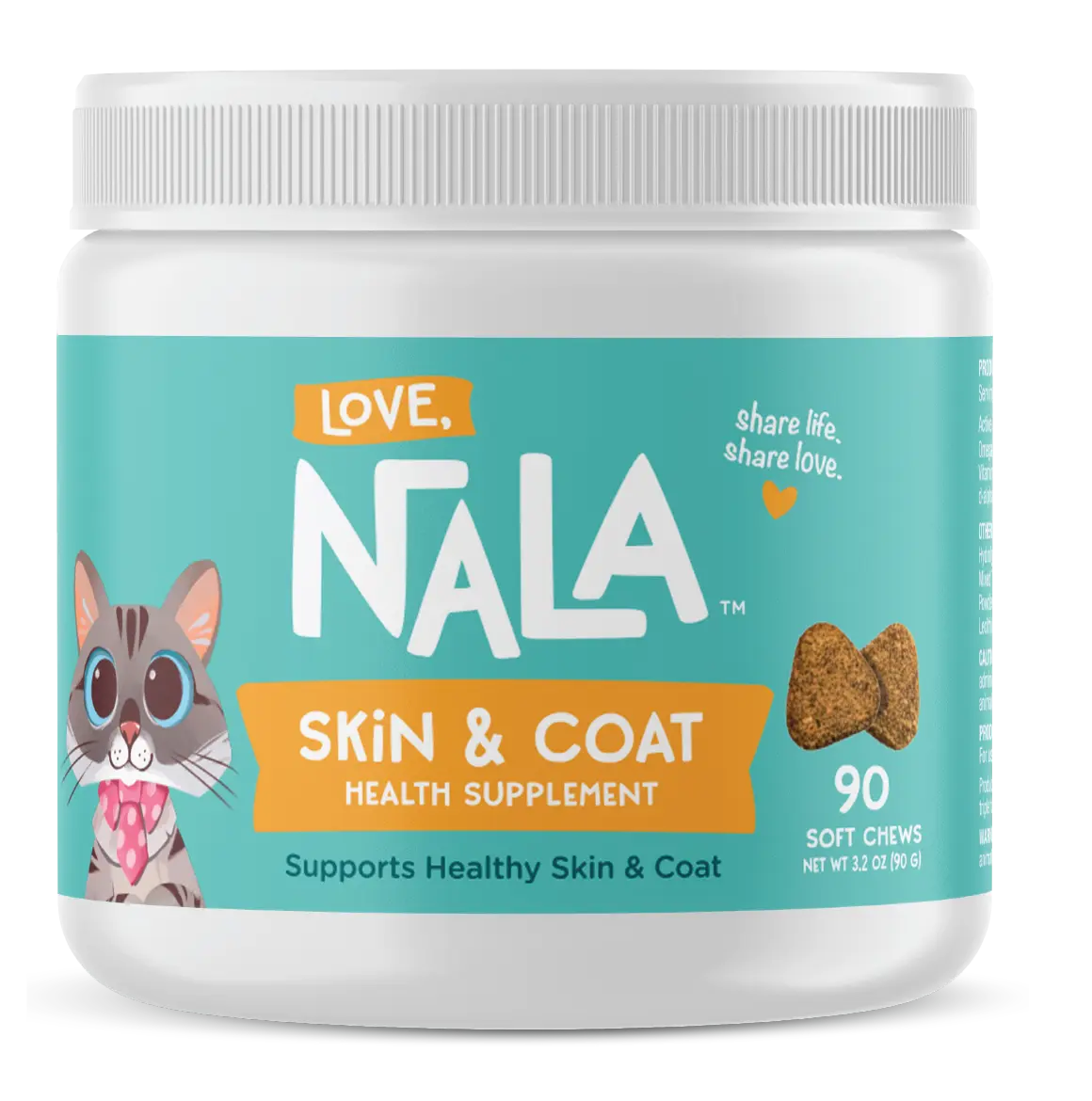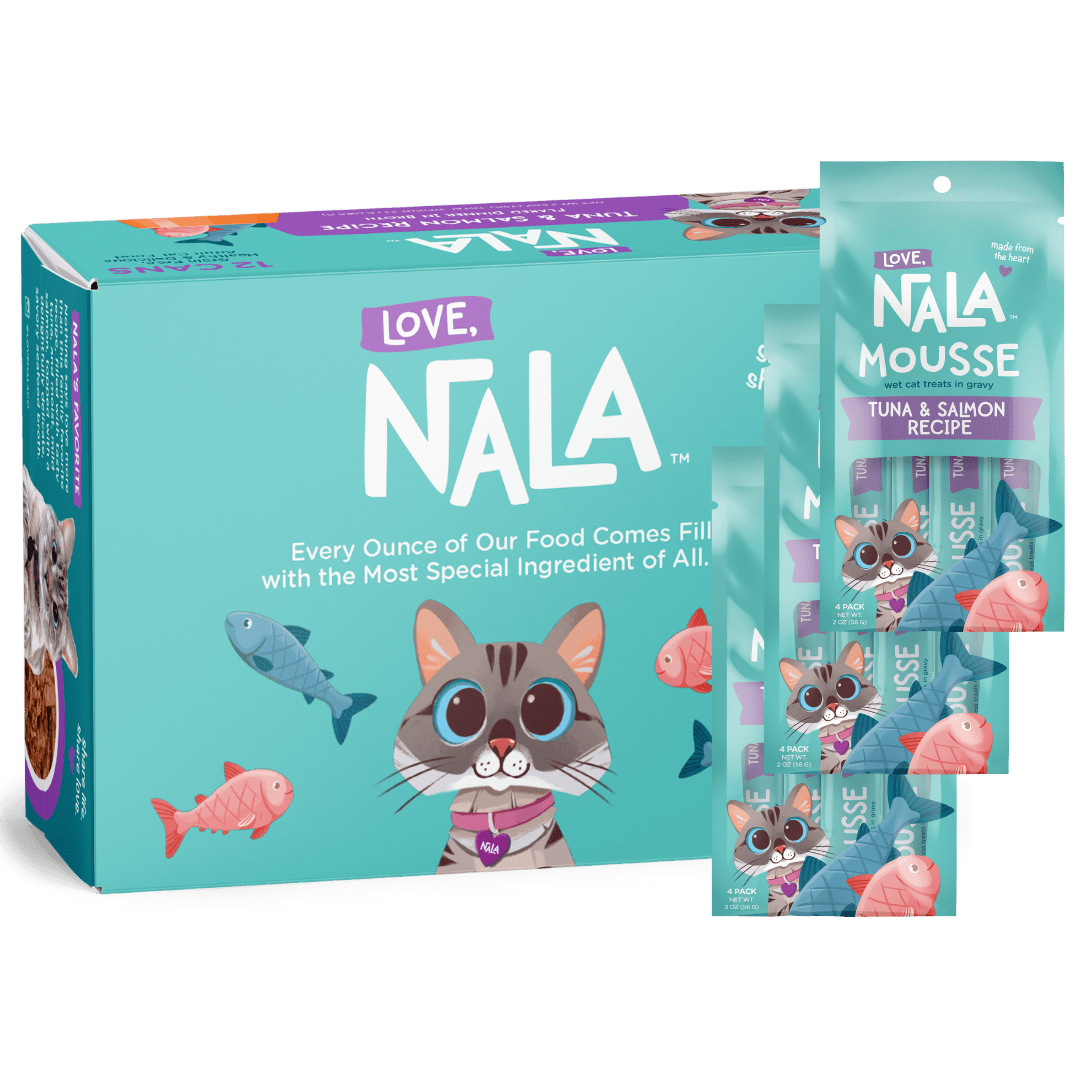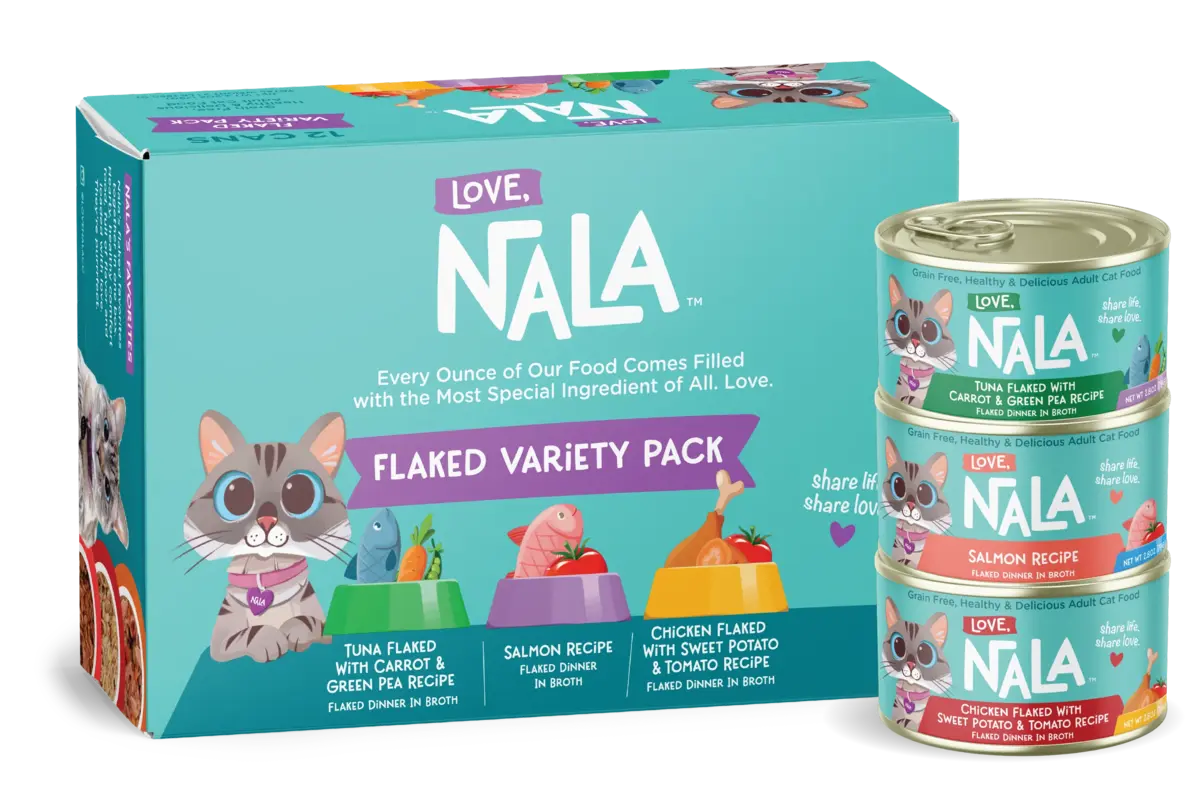Understanding the digestive process in cats is essential for maintaining their overall health. Cats are obligate carnivores, meaning their digestive systems are specifically adapted to process meat. Their digestive tract is relatively short compared to herbivores, which means food passes through quickly. This efficiency allows them to absorb nutrients from meat-based diets effectively. However, it also means that any disruptions, such as improper diet or stress, can quickly lead to digestive problems. Ensuring your cat's diet supports this natural digestive process is key to maintaining their health and well-being.
The purpose of this blog post is to provide cat owners with comprehensive information on how to support cat digestive health. By understanding the factors that contribute to a healthy digestive system, you can make informed decisions about your cat's diet and lifestyle. This post will cover various aspects, including diet, supplements, natural remedies, and practical feeding tips. Each section is designed to offer actionable advice to improve your cat's digestion and overall gastrointestinal health. Whether you're dealing with specific issues like a sensitive stomach or simply want to ensure your cat's diet is optimal, this guide will help you.

Balanced Diet for Optimal Digestion
High-Quality, Easily Digestible Cat Food
A balanced diet is crucial for healthy cat digestion. Choosing high-quality, easily digestible cat food ensures that your cat receives all the essential nutrients without overburdening their digestive system. Look for foods with high meat content, as cats are obligate carnivores and thrive on protein-rich diets. Foods with minimal fillers and artificial additives are ideal, as these can be harder for cats to digest and may lead to gastrointestinal issues. Ensuring the food is nutritionally complete and balanced helps support your cat's overall health and well-being.
Importance of Protein and Fat Balance
The balance of protein and fat in your cat's diet significantly impacts their digestive health. Cats require a high-protein diet to maintain muscle mass and overall vitality. However, it's equally important that the diet contains the right amount of fat, which provides essential fatty acids and helps in nutrient absorption. Too much fat can lead to weight gain and digestive problems, while too little can result in poor coat condition and energy levels. Striking the right balance ensures your cat's diet supports cat gastrointestinal health effectively.
Role of Moisture in Cat Food
Moisture plays a vital role in maintaining a healthy cat digestion system. Cats have a low thirst drive compared to other animals, which can lead to dehydration if their diet lacks sufficient moisture. Wet cat food or adding water to dry kibble can help increase your cat's water intake, aiding digestion and preventing urinary tract issues. Adequate hydration also helps in the smooth passage of food through the digestive tract, reducing the risk of constipation and promoting overall gastrointestinal health.
Avoiding Fillers and Artificial Ingredients
Fillers and artificial ingredients in cat food can negatively impact your cat's digestion. Fillers, such as corn, soy, and wheat, are often used to bulk up cat food but offer little nutritional value. These ingredients can be difficult for cats to digest and may cause food sensitivities or allergies. Artificial preservatives, colors, and flavors can also disrupt the digestive process and lead to gastrointestinal discomfort. Choosing a diet free from unnecessary fillers and artificial additives helps support cat digestive health and ensures your pet is getting the best possible nutrition.
Benefits of Grain-Free and High-Fiber Cat Food
Grain-Free Diets and Food Sensitivities
A grain-free cat food diet can be beneficial for cats with food sensitivities or allergies. Grains like corn, wheat, and soy are common allergens that can cause digestive upset, including vomiting and diarrhea. By eliminating these grains from your cat's diet, you can reduce the likelihood of these adverse reactions. Grain-free diets often rely on alternative carbohydrate sources, such as sweet potatoes or peas, which are easier for cats to digest and can lead to improved overall gastrointestinal health.
High-Fiber Foods for Regular Bowel Movements
Incorporating high-fiber cat food into your pet's diet is essential for maintaining regular bowel movements. Fiber aids in the digestion process by adding bulk to the stool, which helps prevent constipation and promotes smooth passage through the digestive tract. Additionally, fiber can help manage weight by creating a feeling of fullness, which reduces overeating. By ensuring your cat's diet includes adequate fiber, you support a healthy digestive system and overall well-being.
Preventing Constipation with Fiber
Constipation is a common issue in cats that can be alleviated with a diet rich in fiber. Fiber helps to increase stool bulk and stimulate intestinal motility, making it easier for your cat to pass stools regularly. This is particularly important for older cats or those with a sedentary lifestyle, who may be more prone to constipation. By choosing high-fiber cat food, you can help prevent digestive discomfort and maintain a healthy, functioning digestive system for your cat.
Choosing the Right Grain-Free and High-Fiber Options
When selecting grain-free and high-fiber food options for your cat, it's crucial to read labels carefully and choose products that provide balanced nutrition. The right choices can significantly impact your cat's digestive health and overall well-being. Here's a guide to help you make informed decisions:
- Check for High-Quality Protein Sources: Ensure the food lists high-quality protein, such as chicken, turkey, or fish, as the primary ingredient. Cats are obligate carnivores, and protein is essential for their health.
- Include Fiber-Rich Ingredients: Look for ingredients like pumpkin, peas, and sweet potatoes, which are excellent sources of fiber. These ingredients can help support regular bowel movements and prevent constipation.
- Avoid Excessive Fillers: Steer clear of cat foods that contain fillers like corn, wheat, and soy. These can be hard for cats to digest and may lead to gastrointestinal issues.
- Beware of Artificial Additives: Choose foods free from artificial preservatives, colors, and flavors. These additives can disrupt your cat's digestion and may cause sensitivities or allergies.
- Select Foods for Sensitive Stomachs: Opt for foods specifically formulated for sensitive stomach cat food. These options are designed to be gentle on your cat's digestive system and can help reduce the risk of digestive upset.
By choosing the right cat food for sensitive stomachs, you can support your cat's digestive health and ensure they receive the nutrients they need for a happy, healthy life. Paying attention to these factors can make a significant difference in your cat's overall well-being and gastrointestinal health.
Digestive Supplements for Cats
Probiotics for Gut Health
Probiotics for cats play a crucial role in maintaining a healthy digestive system by balancing the gut microbiome. These beneficial bacteria help in breaking down food, absorbing nutrients, and strengthening the immune system. Regularly incorporating probiotics into your cat's diet can prevent digestive disturbances like diarrhea and constipation. Many probiotic supplements are available in various forms, including powders, capsules, and treats, making it easy to add them to your cat's daily routine. Ensuring your cat has a healthy gut flora is essential for overall well-being and improved digestion.
Benefits of Digestive Enzymes
Cat digestive enzymes are another essential supplement that can significantly enhance your cat's digestion. These enzymes, such as amylase, protease, and lipase, assist in breaking down carbohydrates, proteins, and fats respectively. By supplementing with digestive enzymes, you can help your cat's body efficiently process and absorb nutrients from their food. This is particularly beneficial for older cats or those with digestive issues who may have reduced natural enzyme production. Adding digestive enzymes to your cat's diet can lead to better nutrient absorption and a healthier gastrointestinal system.
Selecting Quality Probiotic Supplements
When choosing probiotic supplements for your cat, it's important to select high-quality products that contain specific strains of beneficial bacteria. Look for supplements that include strains like Lactobacillus and Bifidobacterium, which are known to support cat gut health. Additionally, ensure the product is formulated for cats and has been tested for safety and efficacy. Quality probiotic supplements can help maintain a balanced gut microbiome, reducing the likelihood of digestive issues and promoting overall health. Investing in good probiotics is a proactive step towards supporting your cat's digestive well-being.

How Digestive Enzymes Aid in Digestion
Digestive enzymes are vital for breaking down the food your cat consumes into smaller, absorbable nutrients. Without sufficient enzymes, your cat might experience malabsorption and digestive discomfort. Supplementing with digestive supplements for cats, such as enzyme tablets or powders, can ensure that your cat efficiently digests their food. This can be particularly helpful for cats with pancreatic insufficiency or other digestive disorders. By aiding in the complete digestion of food, enzymes help prevent issues like bloating and gas, contributing to a smoother digestive process and better nutrient uptake.
Natural Remedies for Cat Digestion
Benefits of Pumpkin for Fiber
Pumpkin is a well-known natural remedy for improving cat digestion due to its high fiber content. Adding a small amount of pureed pumpkin to your cat's diet can help regulate their bowel movements and prevent constipation. The soluble fiber in pumpkin absorbs water, which can help soften stools and promote regularity. Moreover, pumpkin is rich in vitamins and minerals that support overall health. This simple, natural ingredient can be a valuable addition to your cat's diet, ensuring they maintain a healthy digestive system without the need for synthetic additives.
Adding Plain Yogurt for Probiotics
Plain yogurt can be a beneficial addition to your cat's diet, offering a natural source of probiotics for cats. As mentioned before, these live bacteria help maintain a balanced gut flora, which is essential for proper digestion. When choosing yogurt, make sure it is plain and free from added sugars or artificial sweeteners, as these can be harmful to cats. A small spoonful of yogurt can aid in digestion and help prevent gastrointestinal issues like diarrhea. Integrating plain yogurt into your cat's diet can support their digestive health in a natural and tasty way.
Herbal Remedies for Digestive Health
Herbal Remedies for Digestive Health
Herbal remedies can be effective in promoting cat gastrointestinal health. Utilizing herbs with natural soothing and healing properties can alleviate various digestive issues in cats. Below are several herbs that can benefit your cat's digestive system:
- Ginger: Ginger is known for its ability to stimulate digestive enzymes, which enhance the breakdown of food and absorption of nutrients. This can help alleviate indigestion and promote smoother digestion in cats.
- Chamomile: Chamomile has anti-inflammatory properties that can calm an irritated stomach. It helps reduce gastrointestinal discomfort and can be particularly useful for cats experiencing stomach upset or mild inflammation.
- Slippery Elm Bark: Slippery elm bark forms a protective coating in the stomach and intestines, reducing inflammation and promoting healing. This herb can be helpful for cats with sensitive stomachs or those recovering from digestive issues.
- Aloe Vera: When given in small, controlled amounts, aloe vera can aid digestion and provide a soothing effect on the digestive tract. It helps alleviate discomfort and supports overall gut health.
- Fennel: Fennel is another herb that can benefit cat digestion by reducing gas and bloating. It helps in relaxing the gastrointestinal tract and can improve digestion and nutrient absorption.
Incorporating these herbs into your cat's diet, either through teas or as supplements, can provide gentle, natural support for their digestive system. These herbal remedies ensure your cat remains comfortable and healthy, addressing digestive discomfort without relying on synthetic treatments.
Safe Natural Supplements for Cats
There are various natural supplements that can support cat gut health without causing adverse side effects. Supplements like slippery elm bark and aloe vera have been used to soothe and heal the digestive tract. Slippery elm bark forms a protective coating in the stomach and intestines, which can reduce inflammation and promote healing. Aloe vera, when given in small, controlled amounts, can aid in digestion and provide a soothing effect. These natural remedies can be an effective way to support your cat's digestive health, offering relief from discomfort and enhancing overall gut function.
Practical Feeding Tips for Healthy Digestion
Regular Meal Times and Portion Control
Establishing regular meal times and controlling portion sizes are essential for maintaining healthy cat digestion. Feeding your cat at consistent times each day helps regulate their digestive system and prevent issues like overeating or indigestion. Consistent meal times create a routine that can reduce stress and make digestion more efficient. Additionally, portion control ensures that your cat receives the right amount of food for their size and activity level, preventing obesity and related digestive problems. By adhering to a regular feeding schedule and appropriate portion sizes, you can significantly enhance your cat's digestive health.
Gradual Changes in Diet
When introducing new foods or making changes to your cat's diet, it's important to do so gradually to avoid upsetting their cat gastrointestinal health. Sudden changes can cause digestive disturbances such as diarrhea or vomiting. To ensure a smooth transition, mix a small amount of the new food with the old food, gradually increasing the proportion of the new food over a week or more. This gradual approach allows your cat's digestive system to adapt to the new diet without causing stress or discomfort, ensuring a successful dietary change.
Importance of Fresh Water
Providing fresh water is crucial for improve cat digestion. As mentioned earlier, adequate hydration aids in the breakdown and absorption of nutrients and helps prevent constipation by keeping the digestive tract well-lubricated. Ensure your cat always has access to clean, fresh water, and consider using a water fountain to encourage more frequent drinking. Cats can be reluctant drinkers, so making water appealing and readily available can significantly benefit their digestive health. Proper hydration is a simple yet vital aspect of supporting your cat's overall well-being and digestive function.
Feeding Techniques to Reduce Hairballs
Hairballs are a common issue that can disrupt cat digestive health support. Implementing feeding techniques to reduce hairball formation is essential. One effective method is feeding your cat smaller, more frequent meals, which can help prevent hair accumulation in the stomach. Additionally, incorporating a hairball control cat food that contains specific fibers can aid in the passage of hair through the digestive tract. Regular grooming also plays a crucial role in minimizing hair ingestion. By addressing hairballs proactively, you can help maintain your cat's digestive health and comfort.
Managing Common Digestive Issues
Preventing and treating hairballs is crucial for maintaining cat digestive health support. Hairballs form when cats groom themselves and ingest loose hair, which can accumulate in their stomachs. This issue is more common in long-haired breeds but can affect any cat. To prevent hairballs, regular grooming is essential. Brushing your cat frequently helps remove loose hair before it can be ingested. Additionally, specialized hairball control foods and treats that contain specific fibers can help pass the hair through the digestive system more easily. If hairballs become frequent or problematic, consulting with a veterinarian for appropriate treatments or supplements can ensure your cat's digestive health remains optimal.

Diarrhea and vomiting are common digestive issues in cats that can indicate underlying health problems or dietary indiscretions. Addressing these symptoms promptly is essential to maintain cat gastrointestinal health. If your cat experiences diarrhea or vomiting, it's important to withhold food for a short period to allow their stomach to settle, but ensure they have access to water. Gradually reintroducing a bland diet, such as boiled chicken and rice, can help soothe their digestive system. If symptoms persist beyond 24 hours or are accompanied by other concerning signs, seek veterinary advice to rule out more serious conditions. Properly managing these symptoms can help restore your cat's digestive balance and overall well-being.
Constipation can be a common yet uncomfortable issue for cats, impacting their overall health and well-being. Recognizing the signs of constipation, such as straining in the litter box, infrequent bowel movements, or hard, dry stools, is the first step in managing this condition. Dietary adjustments, including the addition of high-fiber cat food, can help alleviate constipation by promoting regular bowel movements.
Ensuring your cat stays hydrated and encouraging regular exercise can also aid in preventing constipation. If your cat continues to experience constipation despite these efforts, consulting with a veterinarian is essential to identify any underlying issues and receive appropriate treatment. Proper management of constipation helps maintain a healthy digestive system and overall comfort for your cat.
